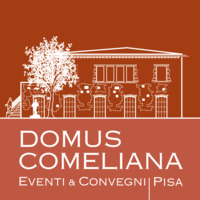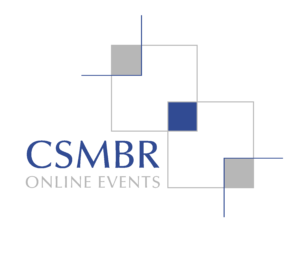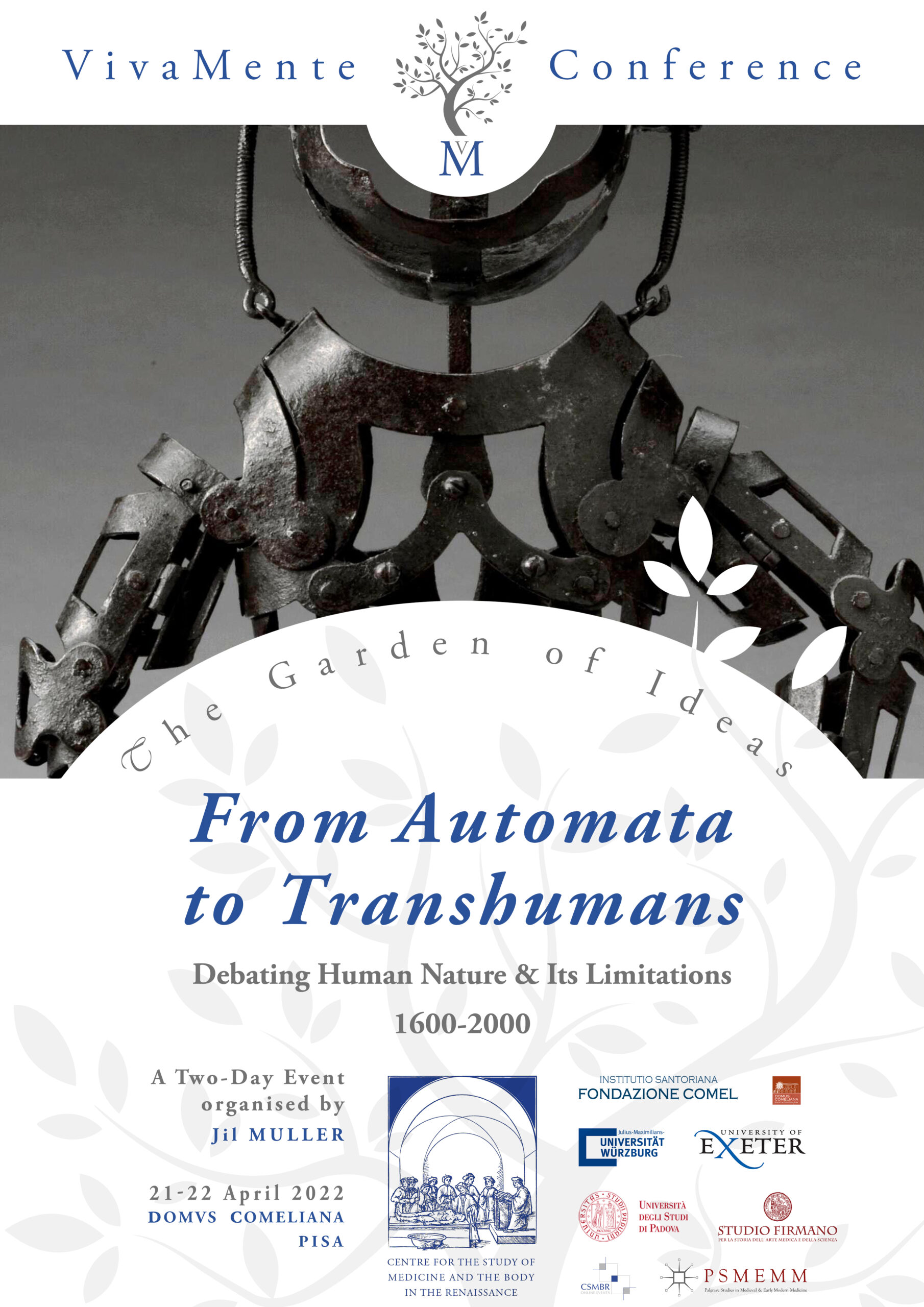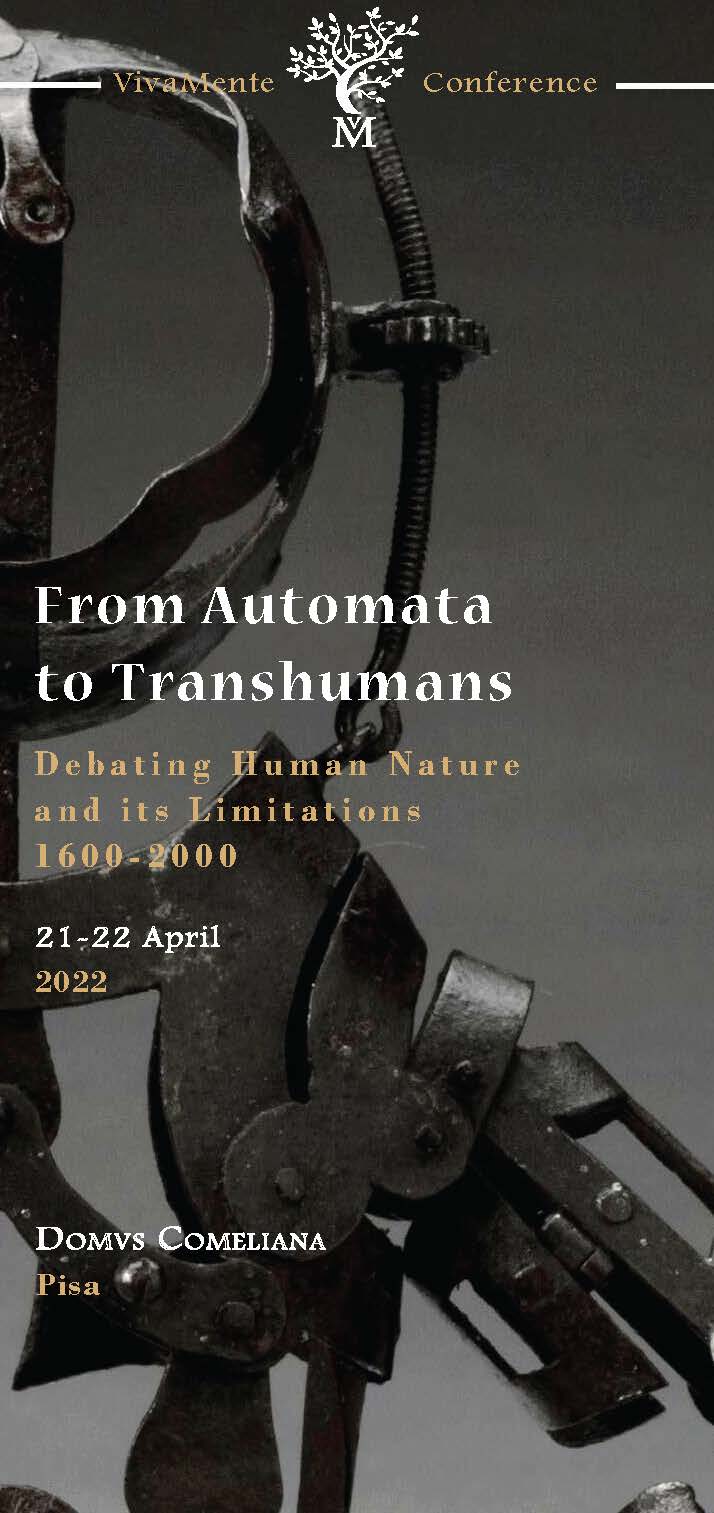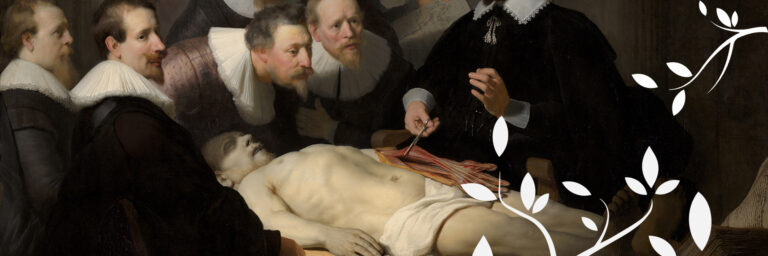From Automata to Transhumans
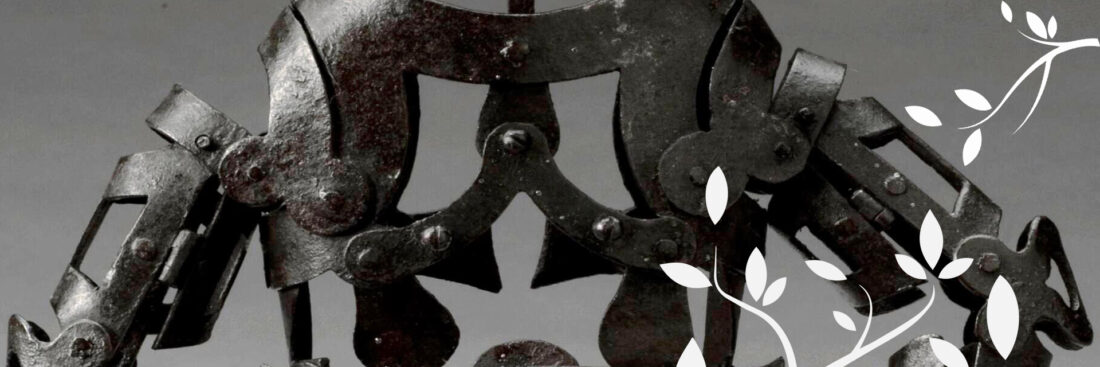
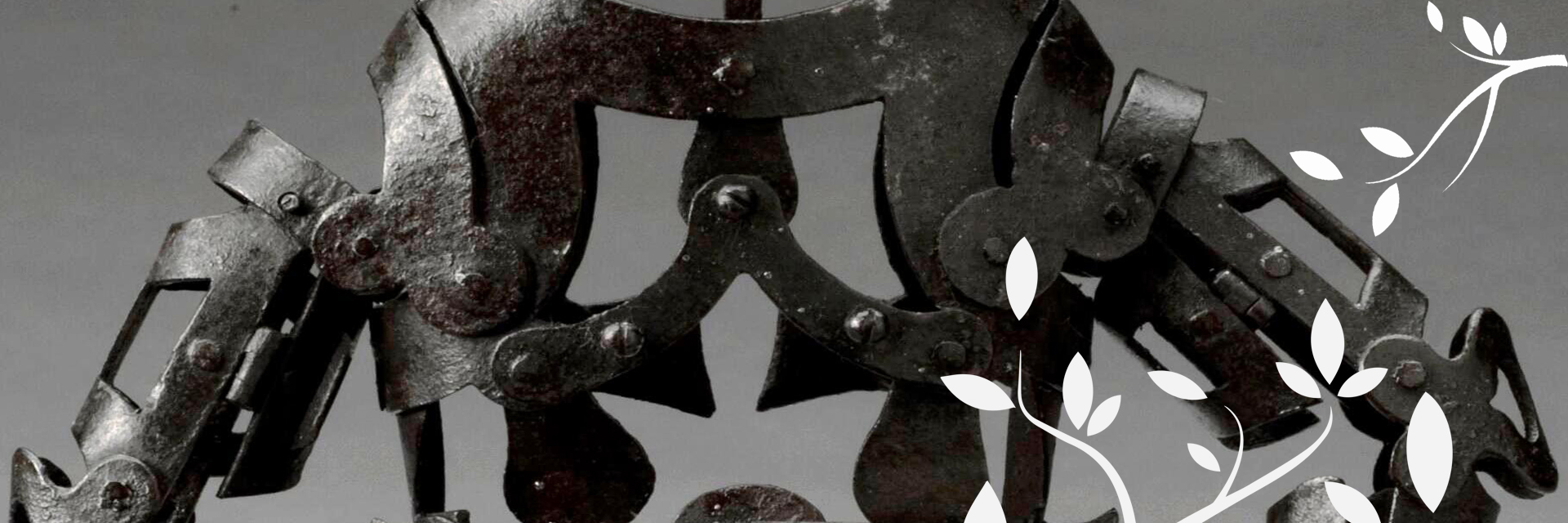
VivaMente Conference in the History of Ideas
From Automata to Transhumans
Debating Human Nature and Its Limitations: 1600-2000
21-22 April 2022
Organised by
Jil Muller
Guido Giglioni
Keynote Speakers
Sarah Carvallo
Sietske Fransen
Ruth E. Hagengruber
Thierry Hoquet
Michael Stolberg
Charles Wolfe
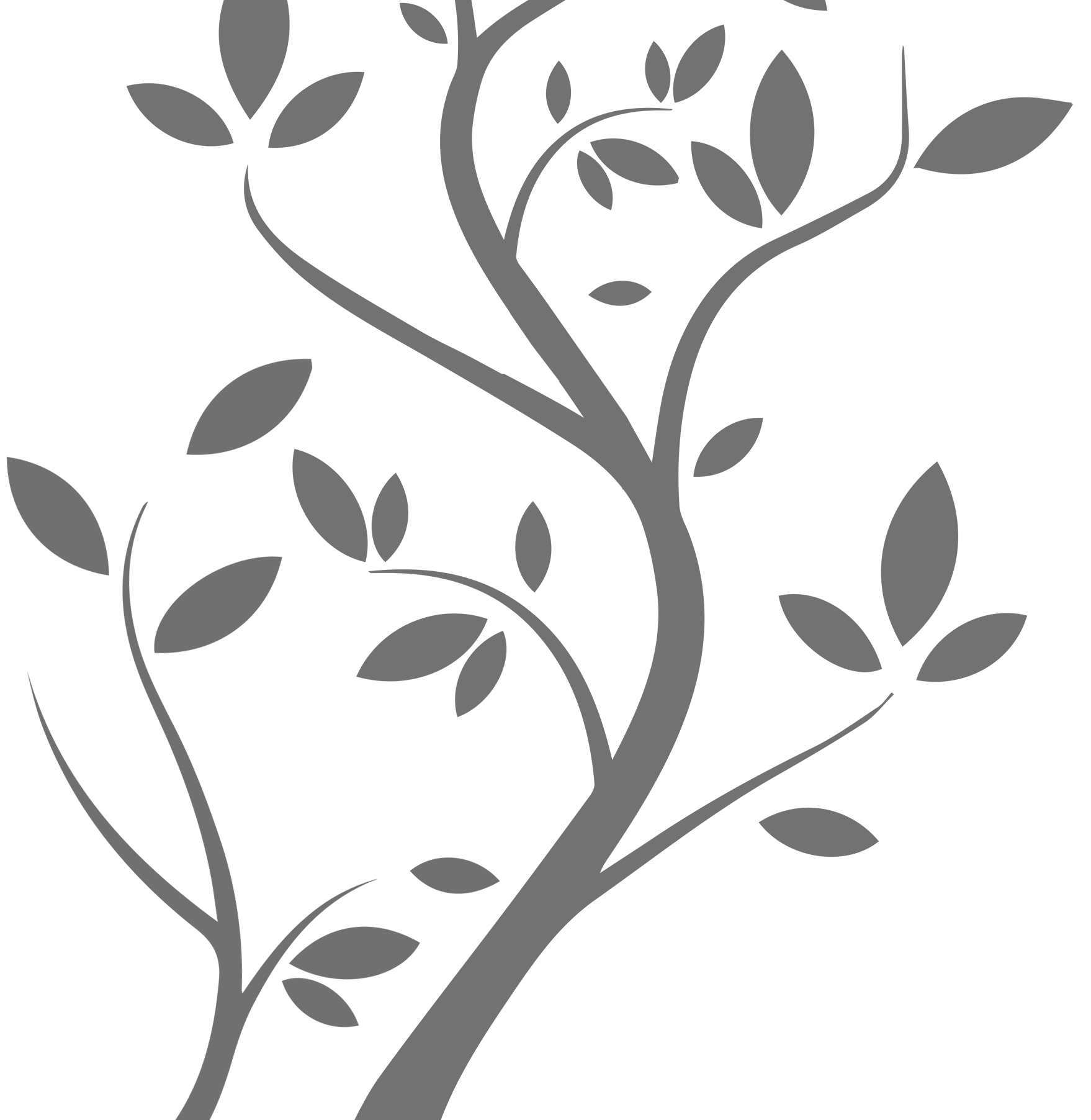
Click to download the poster
Conference Topics
![]()
Mechanical philosophy and mechanistic thinking: origins, limits, perspectives, applications, ethical challenges;
![]()
Transcending the human in medicine, science, philosophy, art, literature, religion, etc.;
![]()
Normal, Pathological and Beyond: Monsters, Hybrid Creatures and Transhuman Developments;
![]()
Images and metaphors of the above.
Click to download the programme
An important part of the contemporary debate on human nature was shaped by debates taking place in early modern Europe in the attempt to remove the animal part of the human mind by turning it into an abstract monad while converting the body into a machine. Humans gained the promise of certain and universal knowledge (mathesis universalis) but began thinking of themselves as automata, bereft of individuality and real agency. Much of the questions raised back then resonate with us still nowadays:
-
-
-
- Is human nature something immutable or is it the product of history and social conventions?
-
-
-
-
-
- Do humans even have a nature? And what does it mean for humans to have a nature and to what extent does biology condition what we are?
-
-
-
-
-
- Is human nature something immutable or is it the product of history and social conventions?
-
-
-
-
-
- Is it desirable to use technology to enhance the desirable characteristics of the human species?
-
-
-
-
-
- What instruments, images, analogies, models and literary strategies were used to further such a project?
-
-
-
-
-
- How does the early modern debate on automata and man-machine (homme machine) predates the modern on transhumanism and posthumanism?
-
-
-
-
-
- How does the debate evolve after the eighteenth century?
-
-
The 2022 round of the VivaMente Conference in the History of Ideas aims at exploring such questions from a multidisciplinary approach, bringing together scholars from different fields, interests and periods. The conference is thought to take place as an open debate, with keynote speakers discussing the early modern philosophical and ethical implications of mechanical philosophy and with attendees focusing on the modern and postmodern impact of the early modern debate. By doing so, the conference aims to bring the research about the automata up to date and to connect historians of philosophy, arts and literature with researchers of transhumanism and artificial intelligence.
Today, the characteristic tropes and patterns that once defined the course of early modern mechanical philosophy are witnessing an extraordinary resurgence of interest among scientists, scholars and lay people concerned with the fate of human beings. The reasons are numerous and of various kinds: the outstanding progress of Artificial Intelligence (AI), the pervasive influence of the Internet of things (IoT) and the combined synergy of neuroscience and nanotechnology, to mention only the most relevant ones. Philosophically speaking, the field of possibilities is growing by the day. If a new La Mettrie were to live today, his Homme-machine would have to cope with the exponential growth of experimental evidence and scientific theorizations.
Thus, this Vivamente Conference intends to shed new light on the early modern origins of automata, to discuss the impact of their legacy throughout the seventeenth, eighteenth and nineteenth centuries, and, finally, to ask the fundamental question of how to update our knowledge – in both theoretical and moral terms – concerning automata and automation as we are confronted by a staggering and constantly evolving volume of information and innovations on the subject.
Discussions will also address the field of post-human and trans-human speculations. The future is looming with the possibility of increasingly sophisticated mechanical minds in addition to the more familiar – both philosophically and technologically – mechanical bodies.
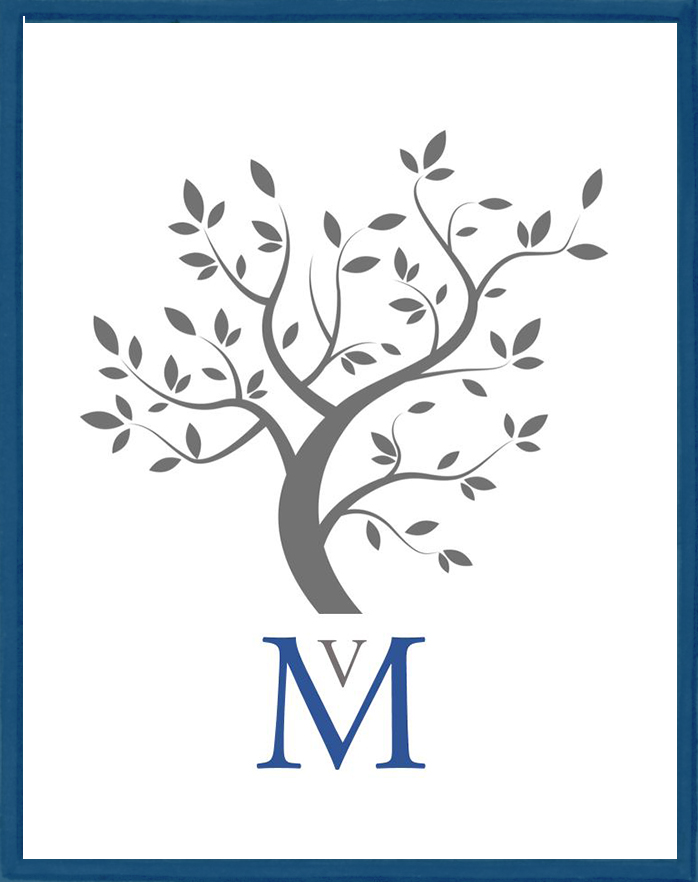
Conference type: Hybrid
Dates: 21-22 April
Venue: Domvs Comeliana
Application Deadline: 14 February
Registration Deadline: 28 February
Queries
Conference Proceedings

Registration Fees
€ 100 = In-Presence
€ 50 = Online
Check Out
Credits
Scientific Direction:
Fabrizio Bigotti
General Coordination:
Tomaso M. Pedrotti Dell’Acqua
